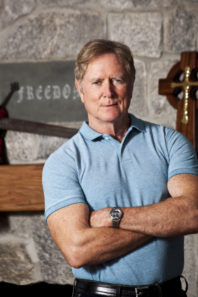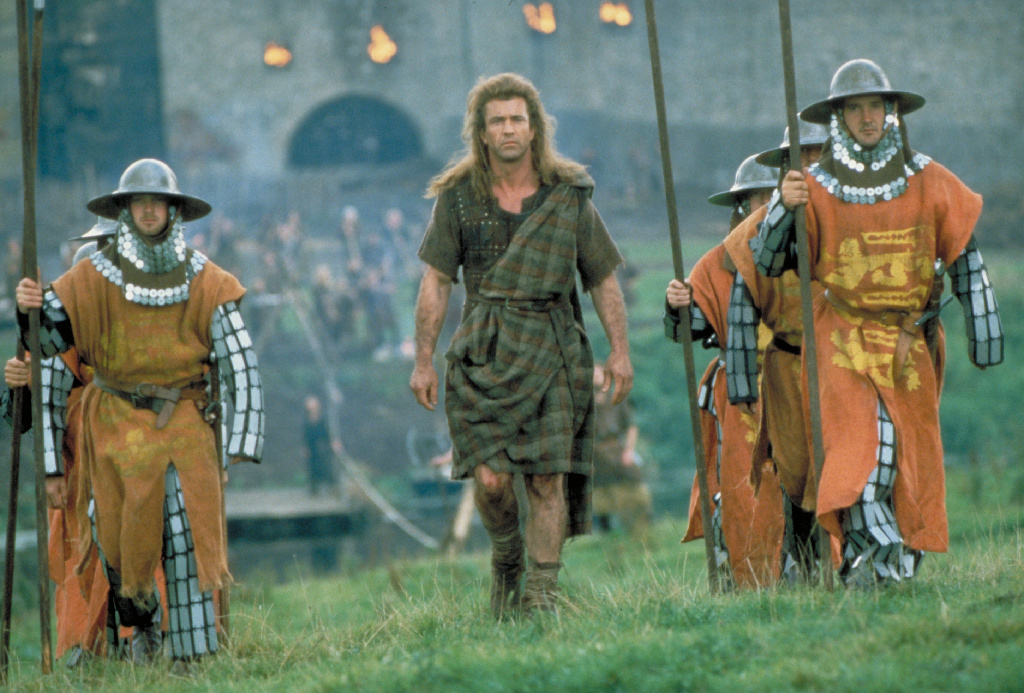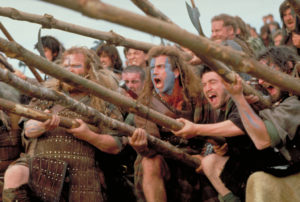
Some films really just sustain through time…
It’s a big year for anniversaries of classic films here in 2020 as Braveheart the iconic tale of power hope and inspiration following William Wallace who rallies his Scottish countrymen against the oppressive rule of the British is now 25 years old.
In advance of the release of a brand new 4K Blu-Ray of Braveheart I got the chance to talk with screenwriter Randall Wallace as we talk about the inspiration for the story, getting to share the experience with someone who was also fairly new to the directing game and the lasting impact that Braveheart has had on him.
Dave Voigt: First and foremost; Congratulations on the big anniversary! Can you walk me through your initial inspiration to write Braveheart and more importantly why do you think this was the screenplay that really broke you out success wise because you had worked on some TV before this but nothing quite at this scale.
Randall Wallace: My journey was that I had been studying religion in college and even went to the seminary for a year, then I went to be a songwriter but then I ended up in California writing screenplays because movies we’re always the kind of stories that I found most powerful even though to be quite honest I never imagined myself for a second actually being in the movie business!
But I always had great reverence for movies that we’re an experience. The kind of films that when I walked from the theatre I just knew that my life would never be the same because of what I just saw, I knew that those were the kinds of stories that I wanted to tell but it just never felt like those opportunities were there, especially in television where I was basically doing ‘serial’ kind of stuff. Eventually I reached a point when I knew that I just couldn’t do that anymore and I thought that I might have one more chance to do what I wanted to do before I gave up and left writing all together. Write something that I actually wanted to see rather than trying to write something that I thought the market might want to buy. I had done some research and the story of William Wallace really felt like it had some dimensions to it that went beyond any other story that I could have imagined and that’s how I sat down to write Braveheart.
That plays into my next question a little bit because as much as this was your very first feature it was only Mel’s (Gibson) second. How was it for you to share this experience with someone who for all intents and purposes was in a very similar stage for his writing/directing career?
You know what? No one has EVER asked me that and it’s a perfect question!
While Mel was undoubtedly one of the most popular actors in the world at that time, as a director he was pretty new to the game. I more or less wrote the part with Mel in mind and there really couldn’t have been anyone else to play the role but I also thought that he’d be perfect to direct it because he had the courage to do The Man Without A Face. Instead of doing some shallow and accessible kind of banal action movie he dove head first into that story which was an incredibly complex work and as an actor he had the courage to step up and play Hamlet. Doing both those project took some serious guts and anyone who was going to play Braveheart had to BELIEVE in heroism and sacrifice.
Ultimately it really was a very inspired experience because I had created this story with a lot of blood, sweat and tears. It was like a father on his daughter’s wedding day having to give up this baby to someone else, but Mel completely understood every element of the story. From the overt masculinity to the tenderness in the moment when he receives a flower from a woman and the overall sacrifice that it took to real understand the role. Many actors would have just refused to play a character that gets disemboweled and beheaded because “their audience wouldn’t want to see that” but Mel understood embraced the nature of the character and the ultimate sacrifice that he made.
How did working on Braveheart inform you going forward when you made your own films like Man With The Iron Mask and is there anything about entirety of the Braveheart experience that you couldn’t necessarily appreciate then, but ultimately can now?
I wasn’t on set all that much because I had such faith in Mel and really just wanted to stay out of the way because one of the first things that he said to me when we started to work together on all this was “Tell me everything that you’ve cut out before you gave it to me” which was such a great question and we really just worked on taking it all apart and then back together again which was such a great experience and preparation. However I will say that my very first day on any kind of movie set was when they we’re shooting the “Sons of Scotland” speech which was just electric. There was also something that I appreciate now more than ever was when he was working on a scene with Sophie Marceau which was when Wallace and the princess first meet and they were having some troubles getting the scene to click, so Mel invited me into the tent see the scene and I gave him a note which he absolutely loved and right then and there he said to me that “If you ever want to direct something, I’ll act in it” which meant the world to me and still does to this day. It was a powerful moment for me.
Braveheart 4K Steelbook is available at all major retailers now.

